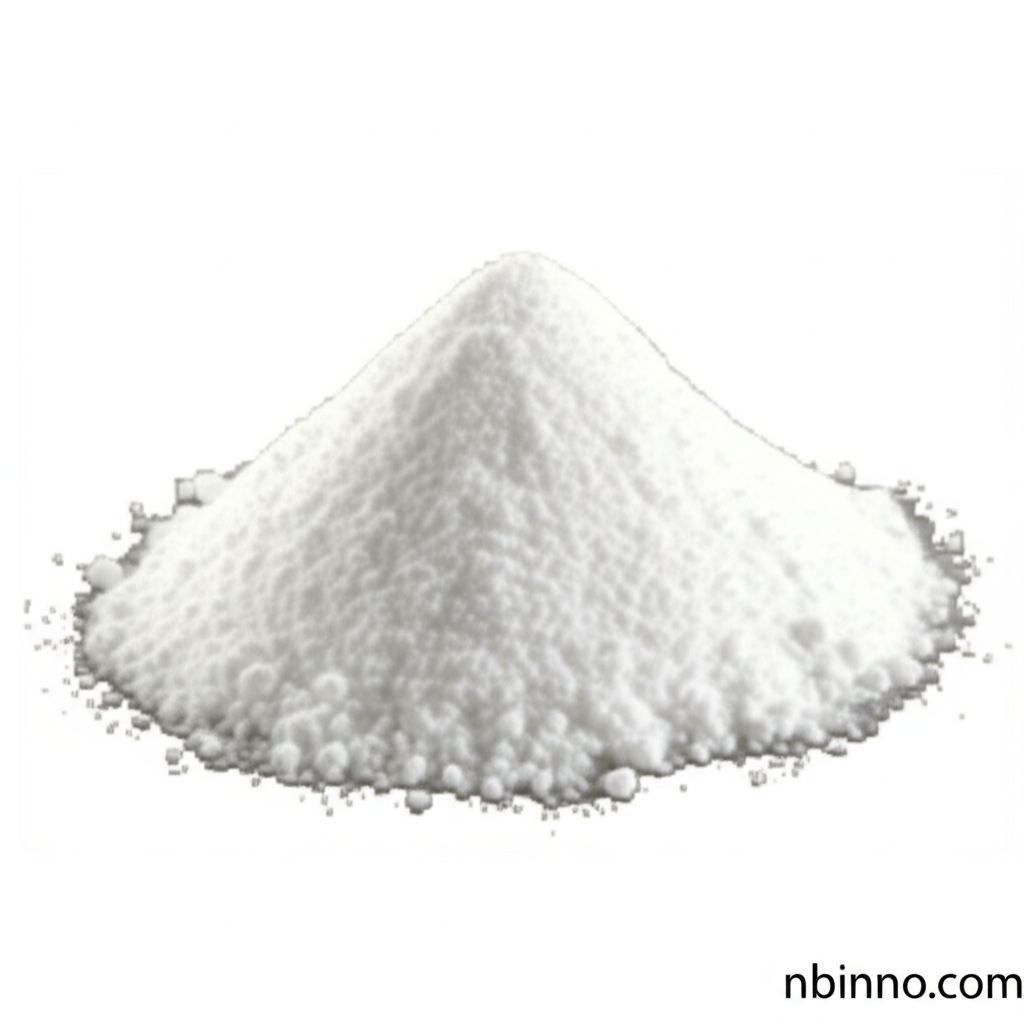BOP Reagent: A Key Coupling Agent in Peptide Synthesis and Organic Chemistry
Discover the power of BOP reagent in forming amide and ester bonds, essential for peptide synthesis and more.
Get a Quote & SampleProduct Core Value

Benzotriazol-1-yloxy-tris(dimethylamino)phosphonium hexafluorophosphate
This phosphonium salt serves as a highly effective reagent for facilitating amide and ester bond formation from carboxylic acids and amines or alcohols, respectively. It is a critical component in the intricate field of peptide synthesis, contributing to the successful creation of peptide chains.
- Discover the efficient amide bond formation mechanism facilitated by BOP reagent, a cornerstone in organic synthesis.
- Explore the utility of BOP reagent in ester synthesis, expanding its application beyond peptide synthesis.
- Understand the critical role of this coupling agent in achieving successful amide formation in complex organic molecules.
- Learn about the potential risks associated with the carcinogenic byproduct HMPA, prompting the search for safer alternatives.
Key Advantages
Enhanced Coupling Efficiency
BOP reagent offers robust efficiency in driving amide bond formation reactions, ensuring higher yields and fewer side reactions in complex syntheses.
Versatile Applications
Beyond its primary use in peptide synthesis, BOP reagent is valuable for ester synthesis and the direct reduction of carboxylic acids to primary alcohols, showcasing its versatility in organic synthesis.
Established Reagent in Peptide Synthesis
As a well-known coupling agent, understanding the BOP reagent mechanism is crucial for researchers in academia and industry working with peptide synthesis.
Key Applications
Peptide Synthesis
Crucial for forming peptide bonds, enabling the construction of complex peptide sequences and contributing to advancements in biochemistry.
Amide Formation
A reliable reagent for general amide formation, widely used in the synthesis of pharmaceuticals, agrochemicals, and other fine chemicals.
Ester Synthesis
Facilitates the efficient creation of esters from carboxylic acids and alcohols, broadening its applicability in organic chemistry.
Carboxylic Acid Reduction
Enables the direct conversion of carboxylic acids into primary alcohols, offering a useful synthetic pathway in various chemical processes.
